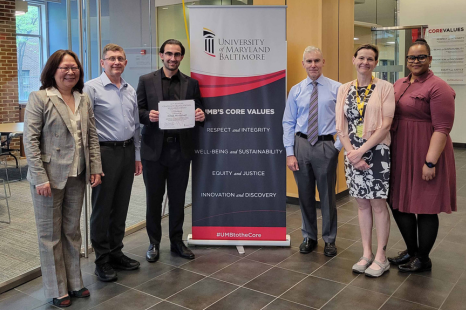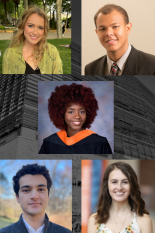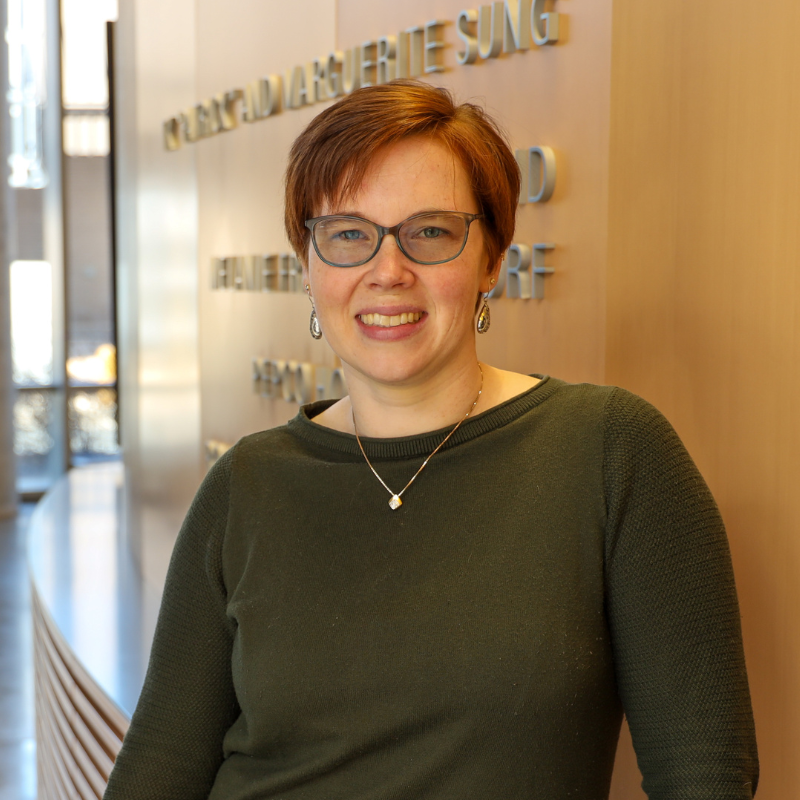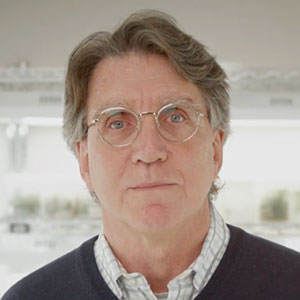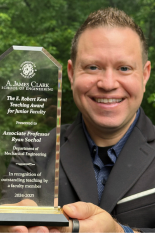News Story
BIOE Announces 2024 Fischell Fellows at EPIC Retreat
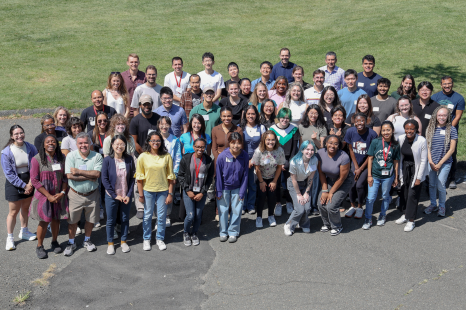
On Friday, August 23, the Fischell Department of Bioengineering (BIOE) hosted its seventh annual Enhancing and Promoting Interactions and Conversations (EPIC) Retreat at the University of Maryland Golf Course. The day-long event brought together over 80 BIOE students, faculty, and staff to welcome new graduate students, discuss new research, foster new collaborations, and build a sense of community. At the retreat, BIOE Ph.D. students Michael Straker and Ian Smith were announced as the 2024 Fischell Fellows.
The EPIC Retreat, established by BIOE Associate Professor and Director of Graduate Studies Helim Aranda-Espinoza in 2018, has become a proud tradition and a key event for promoting collaboration and networking within the department. This year’s retreat featured presentations by incoming BIOE faculty members Alex Xu and Nan Xu, a talk by newly appointed BIOE Advisory Board Chair Peter Saltani, and team-building activities led by the Bioengineering Graduate Student Society (BGSS).
Each year, the department is proud to announce two winners of the Fischell Fellowships at the EPIC Retreat. The Fischell Fellowship—named in honor of inventor and department namesake Dr. Robert E. Fischell—is a unique opportunity for talented and innovative graduate students interested in applied research and product design in the biomedical industry.

Fifth-year Ph.D. student Michael Straker plans to use his Fischell Fellowship to improve ingestible devices for gastrointestinal (GI) health monitoring. Currently a graduate researcher in the MEMS Sensors and Actuators (MSAL) Lab under the mentorship of Reza Ghodssi, Straker’s research involves developing a feedback-driven biopsy module for ingestible devices, with the goal of improving gastrointestinal health monitoring through autonomous target sampling.
“I'm truly honored to receive the Fischell Fellowship and to be recognized among the talented researchers in the Fischell Department of Bioengineering and the Fischell Institute for Biomedical Devices,” says Straker.
Straker chose to study bioengineering to stay at the forefront of medical technology. He finds the mechanisms and processes involved in medical interventions fascinating and enjoys creating new strategies and devices to address healthcare challenges. Straker aims to use the fellowship to advance the development of a feedback-driven biopsy module for ingestible devices.This device has the potential to establish a new paradigm for GI health monitoring by enabling endoscopic capsule robots to perform tissue biopsy in regions of the GI tract that current procedures cannot.
At the retreat, Straker was eager to engage with both new and current graduate students, finding value in the diverse experiences within the bioengineering field.
“My favorite events were the talks given by the students. It's always inspiring to see how others in the department are coming up with innovative ideas to solve the world's most important problems.” Straker says.

Ian Smith is a fifth-year Ph.D. student in the Cell and Microenvironment Engineering Lab, led by BIOE Associate Professor Kimberly Stroka. Smith’s research centers on how certain cues within tumors influence cancer cells to become more aggressive and increase their potential to spread throughout the body. To study these interactions in real-time, he has developed a tumor-on-a-chip model.
Since receiving the award, Smith has begun working with UM Ventures to secure an invention disclosure for his device. This semester, he plans to gather the necessary data to complete the disclosure and work on publishing a paper about the device. At the fellowship’s renewal, Smith intends to collaborate with a researcher at the NIH-NCI to obtain patient-derived samples, aiming to make the device applicable in clinical settings.
As a graduating B.S., Smith was drawn to UMD’s graduate school by the strong sense of campus community and by the research being conducted in Dr. Stroka’s lab, which aligned with his interest in tissue and vasculature engineering. His father's diagnosis with stage 4 pancreatic cancer affirmed his decision to attend UMD— which offered the flexibility to remain close to home while pursuing his degree—and also, in time, influenced his research focus. Dr. Stroka’s lab facilitated a smooth transition from his original focus to cancer research.
On the retreat, Smith says that Dr. Soltani’s career talk really stood out to him. Soltani delved into the complexities and opportunities for those pursuing a career in industry, and offered a foundation for understanding the various paths available to students interested in bioengineering roles. Smith also enjoyed hearing from Dr. Alex Xu, who candidly shared his career journey.
“When pursuing jobs in academia or even industry, it can become disheartening, feeling as though you are the only one going through it,” Smith shared. “Dr. Xu’s talk was one of refreshing candor, discussing the hardships he has experienced to get to where he is, but not allowing it to halt his progress.”
To his peers, Smith advises them “to develop a community of other graduate students and mentors. The PhD has the potential to be the hardest 5 years of your life. It becomes much easier when you have other people to go through it with, to support you when times get hard, and to celebrate with you in the successes,” he says. “Collaboration is an essential facet of our field, so learn to work with and accept help from others.
Published September 11, 2024
